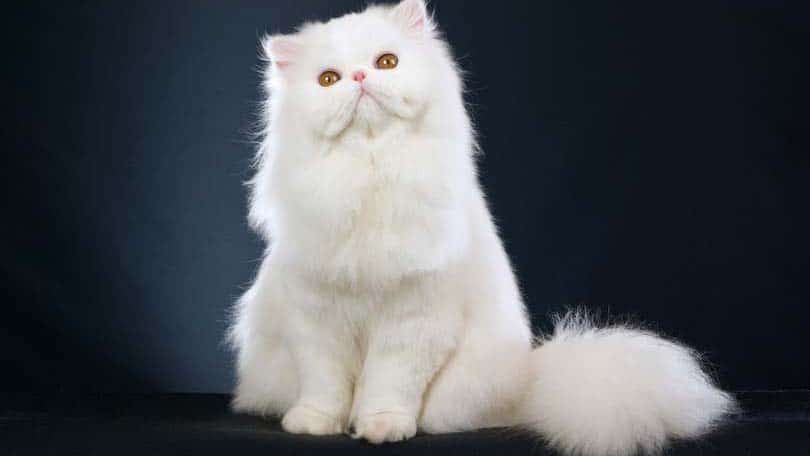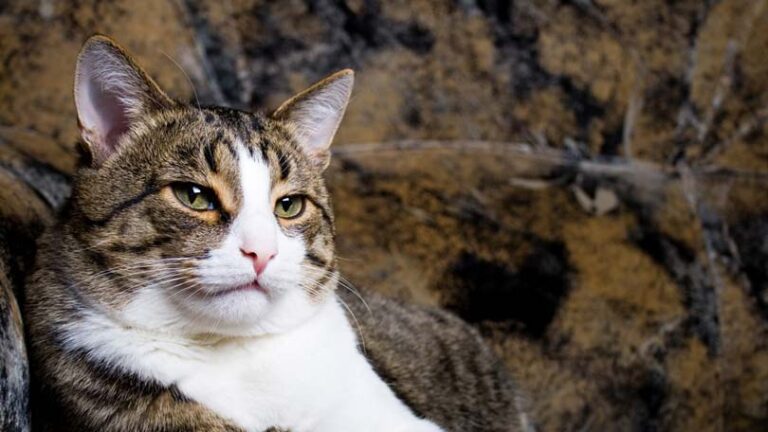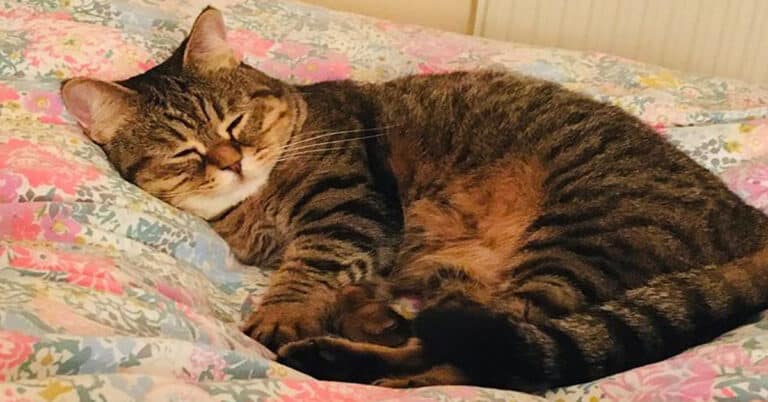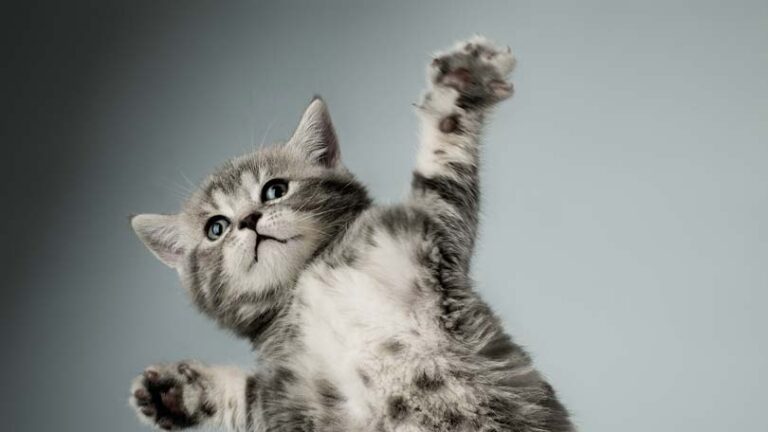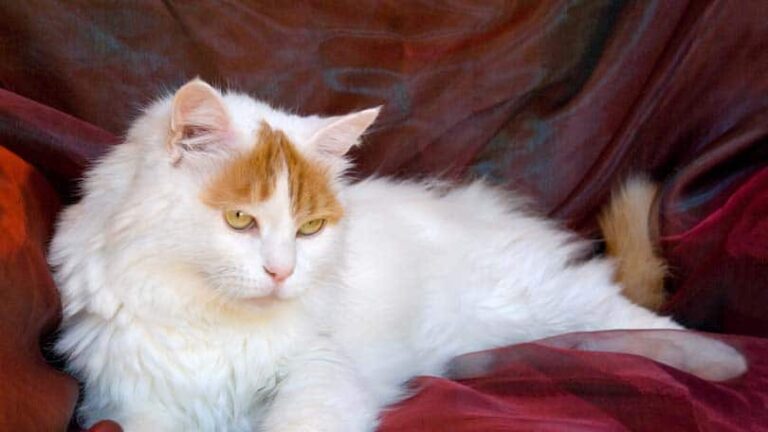Gestation Period for Cats
Gestation is just a fancy word for the period of pregnancy in cats. If you are a cat owner who has recently discovered that your cat is pregnant, you need to get a clear understanding of the gestation period for cats. This is a sensitive and stressful time for your cat – since she lives with you rather than in the wild, you will play a significant role in this pregnancy.
A healthy queen (mother cat) can have up to ten or more kittens at a time, but it is more likely that she will have about five at a time. Some female cats will become pregnant several times in their lifetimes.
It is estimated that baby kittens from birth to age one have a mortality rate of between 10 to 34% — lower for non-pedigreed cats and higher for feral or wild cats (Source: “Kitten Deaths,” Dr. Danielle Gunn-Moore from the University of Edinburgh). But as long as you take good care of the mother and the new kittens you can drastically reduce or eliminate your chance of serious problems with the litter.
How Do You Know Your Cat is Pregnant?
If your female cat is usually in heat for an extended period of time (usually about two weeks), but goes out of heat suddenly in the middle of mating season, there is a possibility that she is pregnant. Pregnancy is the only thing that can stop a female cat’s strange “in heat” behaviors.
In about two weeks you should be able to start seeing physical symptoms of pregnancy. For example, you will see the belly start to grow and the cat’s nipples will become engorged with milk. A cat is a voracious eater during gestation because as the saying goes, she’s eating for five or six now!
When a cat is pregnant, she becomes calm, relaxed, and more affectionate. It’s similar to a satisfied or “full” feeling, knowing that she is doing her job as a female feline. She will start nesting and “mothering” things. You might find your cat shredding up papers and putting them in a hidden location so that she can start setting up her nest. She will hide away from the family more and more. It’s not uncommon to see the gestating cat “mothering” a shoe or another small animal in the house as she prepares for motherhood. It’s sort of like a practice run.
The only way to know beyond a shadow of a doubt that your cat is pregnant is to take her to the vet to get an ultrasound.
How Long is the Gestation Period
The standard gestation period for cats is about 60 to 70 days, the equivalent of about two months. This will be a period of ups and downs for your pregnant cat. She may go from being contented and affectionate, to agitated, and back again during this time.
One thing you can be relieved about is that you won’t have to deal with the annoyances of a female cat in heat during that time. A cat will not go into heat again until after the babies are born.
Caring for Your Cat During Gestation
It’s important to make your pregnant cat as comfortable as possible during gestation. Provide the mother queen with plenty of healthy, nutrient-rich food (you might just want to go ahead and double her portion) and bowls full of fresh water. She will be very hungry and very thirsty. Give her the affection that she needs.
Your queen will instinctively develop her nest, but you can assist her by providing her with a comfy box in the place where she has chosen to hide out. She may or may not choose to use the box though, because now she knows that you know where she’s hiding. Her decision to stay in the hiding place will probably depend on how much she trusts you.
There is little need for a pregnant cat to go to frequent vet visits during pregnancy. It is not like a human pregnancy, where the mother has to get regular gynecological check ups. Cats are usually very low maintenance. However, if you suspect something is wrong, bring the queen in for an emergency check up.
Potential Issues to Look Out For
If the mother cat is unhealthy or sick, this could potentially cause problems with the kittens that are waiting to be born. The babies get important antibodies from the mother’s milk, so if she doesn’t have a strong immune system the babies could be at risk. Talk to your vet about what to do in this situation and have the mother treated.
The Kittens’ Birthday
When the gestation period for cats is finally over, It can be a very exciting time. When it’s time for your cat to give birth, you will know. She will most likely go into hiding for very long periods of time. Leave her alone and let her do her thing.
Don’t crowd over your cat when you think she is going to give birth or try to intervene, unless you feel that there is something seriously wrong. Even then, you should get the professional advice of a veterinarian before doing anything to the cats.
When the kittens are born their eyes will be shut and they will stay crowded around each other for warmth and security. Do not attempt to remove a newborn kitten from its mother until it is at least a few weeks old. Allow it to continue to drink mother’s milk until four weeks or until the queen decides that it is ready for real food.
If you don’t want to deal with this situation again, or you’re not looking forward to another period of heat, OR you don’t feel that your cat is strong enough for another litter, you should get her spayed after the birth of the kittens. Call your vet’s office to determine if the queen is ready to be spayed.
The gestation period and birth of kittens is a beautiful experience. Just do your part-provide proper care and monitor the mother’s condition–and then let nature take its course.

Having discovered a fondness for insects while pursuing her degree in Biology, Randi Jones was quite bugged to know that people usually dismissed these little creatures as “creepy-crawlies”.

